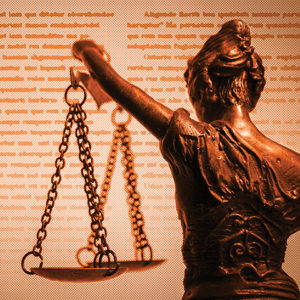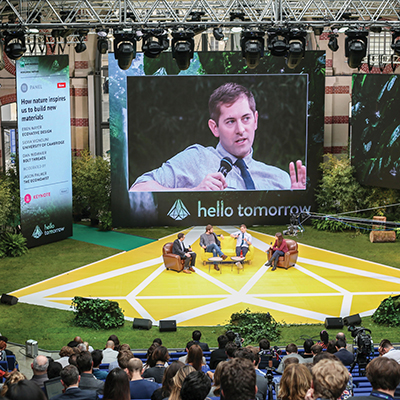
Event Details
March 23, 2018
Columbia Law School
New York City, New York
History Refresher
The First Amendment states: Congress shall make no law respecting an establishment of religion, or prohibiting the free exercise thereof; or abridging the freedom of speech, or of the press; or the right of the people peaceably to assemble, and to petition the Government for a redress of grievances.
What It’s All About
Co-sponsored by the Knight First Amendment Institute and the Center for Constitutional Governance, Columbia Law Review’s latest symposium brought together 300 students, scholars, practitioners, and interested members of the public, in addition to 160 live-stream viewers. The symposium explored the use of the First Amendment in 2018, and ways to improve its application in modern America — a highly relevant topic in today’s political climate.
The full-day symposium’s content was curated from seven essays that will appear in Columbia Law Review’s November 2018 edition, according to Eve Levin, Columbia Law student and an organizer of the event. The topics — including “The Digital Infrastructure and Political Economy of Free Expression” and “Can the First Amendment Be Progressive?” — were discussed in panels made up of essayists and commentators. Panelists included law professors from no less than 14 universities in addition to Columbia.
“The quality of the panelists’ contributions and discussions far exceeded our already high expectations, and the audience really responded positively to the richness of that debate,” Levin told Convene. “We were exceptionally lucky to have such thoughtful, dynamic, intellectually generous scholars from a range of related legal fields write and commentate. The positive audience response was really driven by the quality of the conversation.”
The program kicked off with a breakfast and opening remarks by Columbia Law School professor David Pozen. During lunch, attendees heard from Columbia University President and First Amendment scholar Lee C. Bollinger. Columbia Law Review Editor in Chief Tomi Williams spoke at the program’s conclusion, which was followed by a cocktail reception.
Why We Like It
Columbia Law Review does not hold symposia on a regular basis. Instead, its administrative board reserves such events for years when it is presented with a compelling topic. “This year, we had wonderful faculty sponsors who approached the Law Review with a well-formed, challenging, and timely proposal,” Levin said. “There has been a lot of legal scholarship challenging ‘First Amendment Lochnerism’ in recent years, so it tapped into a timely academic trend.” The proposal was also attractive due to its wider appeal. “Recent events,” Levin said, “have prompted a lot of public interest in the meaning and function of the First Amendment.”
Jameel Jaffer, founding director of the Knight Institute and one of the panel moderators, put it this way on Columbia Law School’s website: “Obviously, there is a lot of pent-up demand for this conversation.”
Where Do We Go From Here?
During his panel, Columbia Law School Professor Tim Wu said: “One of the greatest challenges for this conference, for everyone here, is to actually articulate, if we can, what we think a healthy speech environment looks like.” Sounding like many event organizers who intend that their conferences will have an impact beyond the event itself, Levin said this on Columbia Law School’s website: “The symposium began a very challenging conversation. In that respect, it was all we could have hoped for. In terms of what sort of lasting effect it will have — only time will tell.”
Read more about the symposium at columbialawreview.org/symposium/.



